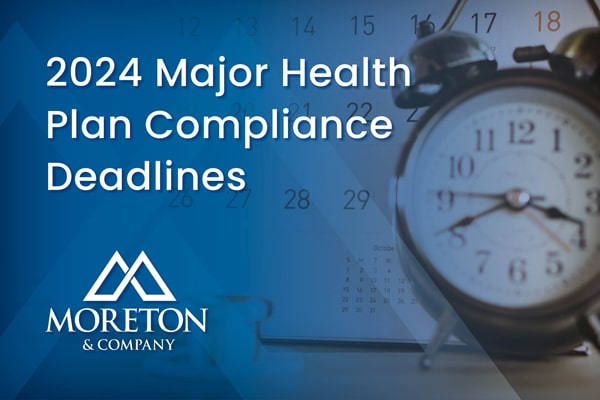
The Mental Health Benefits of Reading
Researchers investigating the impact of reading experiences are reporting evidence of promising mental and social health benefits for readers. Whether reading alone or with others, people are finding connection and meaning between the pages, giving their mental health a boost along the way. Practitioners are now exploring new models using the literary arts to support mental health in clinics, classrooms, and communities worldwide.
Benefits of Reading
The experience of being immersed or engaged while reading a story is called narrative absorption and serves as more than an innately pleasurable experience – it can also enhance our sense of well-being. Researchers believe that mentally transporting ourselves away from our physical surroundings can provide an escape or opportunity for meaningful contemplation.
Reading not only provides these opportunities, but it also helps us make sense of our worlds. In one neuroimaging study, participants who read more narrative fiction had greater activation of parts of the prefrontal cortex involved in perspective-taking when reading text containing social context. This greater activation explains the correlation between lifetime reading and the ability to understand how people are thinking.
A good story tends to stick with you, and so do the benefits. The health impacts of reading last long after we put down the book, with some research showing reductions in depression symptoms persisting months, or even years, later in adults. Reading can not only help make life more worth living, but is also associated with living longer. One study found that older adults who regularly read books had a 20% reduction in mortality compared to those who did not read.
Reading Builds Bridges to Understanding Ourselves & Others
In a time of pronounced isolation and disconnection caused by the pandemic, reading fiction may also help foster greater empathy and social cognition. One study found that frequent fiction readers were associated with better social ability and the tendency to become absorbed in a story correlated with higher empathy scores. These results, along with a meta-analysis, found that lifetime exposure to narrative fiction was associated with more perspective-taking and empathy.
Reading and responding to fiction may foster young people’s understanding of human nature and their place in the world, especially if the texts are thematically relevant and coupled with writing activities that reflect on personal experiences related to the reading. Identifying with characters going through similar experiences can comfort readers, knowing they are not alone in their struggles or pain.
What is Emotional Health?
Good emotional health is essential to resilience, self-awareness, and contentment. It’s important to understand that having good emotional health doesn’t mean you’re always happy or free from negative emotions; instead, it’s about having the skills and resources to manage the ups and downs of life.
Working on our emotional health is just as important as caring for our mental and physical well-being. Taking care of our emotional health can help us with the following:
- Resilience to stress. Emotional distress makes you more vulnerable to physical illness by impacting your immune system.
- Deeper relationships. It will be easier for you to connect with others by showing empathy and compassion. You’ll also manage arguments more easily and talk through your feelings.
- Higher self-esteem. Your thoughts, feelings, and experiences influence how you feel about yourself. Good emotional health will help you see the best you.
- More energy. Having good emotional health helps you feel more energized and focus more clearly.
Improving Emotional Health
Improving your emotional health will take some time, as it is more of a process than a goal. You may already be doing things that can help improve emotional health. Review these tips to see what you can do to enhance your emotional health:
- Practice emotional regulation. Coping strategies such as meditation, journaling, listening to music, and talking with a therapist can help you respond instead of reacting.
- Exercise. Regular exercise can help ease depression and anxiety by releasing natural brain chemicals that can increase your sense of well-being.
- Strengthen social connections. Staying connected with others helps provide a buffer when going through challenges.
Be mindful. Practicing mindfulness can help curb emotional reactivity and develop greater satisfaction. - Get quality sleep. Sleep deprivation can lead to repetitive negative thoughts. Make sure you’re going to bed and waking up on a consistent schedule.
Lamothe, Cindy. “Emotional Health: Why It’s as Important as Physical Health.” Healthline, Healthline Media, 14 June 2019, https://www.healthline.com/health/emotional-health#improvement.
Mental Health Moment: Coping With Change
Change can be overwhelming and cause strong emotions. It’s important to remember that it is natural to feel stress, anxiety, grief, and worry when experiencing change. Learning to cope with change in healthier ways will help you become more resilient.
- Taking care of your body is an important first step in coping with change. You can do some of the following things to help with that:
- Take deep breaths, stretch, or meditate.
- Eat healthy, well-balanced meals.
- Be physically active.
- Get plenty of sleep.
- Make time to unwind. Try to do activities that you enjoy. Catch up on a project you’ve been working on, or start a new hobby!
- Connect with others. Talk with other people that you trust. Openly discuss your feelings and concerns. Consider connecting with community or faith-based organizations.
- Limit screen time. Disconnect from your phone, tv, and computer screens a few times each day.
Free and confidential crisis resources can also help you or a loved one connect with a skilled, trained counselor in your area. Visit the CDC’s Mental Health Resources: for resources if you are seeking help: https://www.cdc.gov/mentalhealth/tools-resources/individuals/index.htm
Source: Centers for Disease Control and Prevention. (2021, July 20). Stress and coping resources.
Centers for Disease Control and Prevention. Retrieved September 14, 2022, from https://www.cdc.gov/mentalhealth/tools-resources/index.htm


